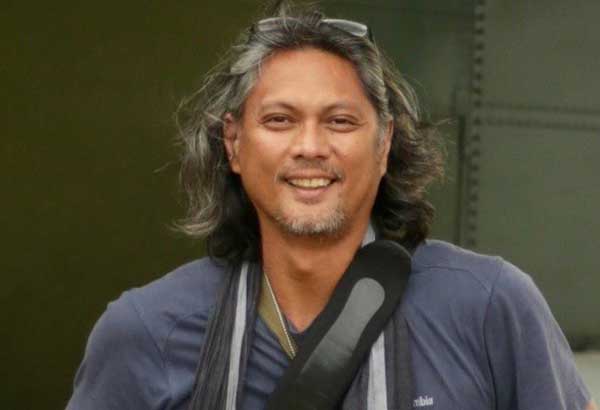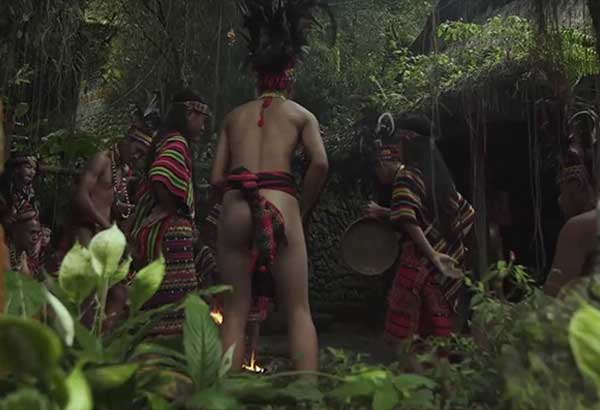Traveling the Extra Mile

Gabriel Malvar, executive producer of Extra Mile Productions.
MANILA, Philippines - Between traveling to conflict-ridden areas and interviewing rebel leaders, Gabriel Malvar is no stranger to danger. Yet the Extra Mile Productions executive producer clarifies that he isn’t reckless. “Takot din naman ako. I take a lot of precautions,” says Gabriel. “Reckless is jumping off 300 feet to cliff dive. What I take are calculated risks.” He recalls a trip to Tugaya in Lanao del Sur in 2012, whose community was an entry for UNESCO, being an entire village of guilds with each household specializing in their own craft. Yet it was the height of the pyramid scam heist in the area, and all hell had broken loose in the city of Marawi, where he would need to pass through to get to Tugaya. “I was told, mali ‘yung timing mo, may gulo ngayon dahil sa pyramid scam.” But a story was beckoning, and Gabriel took his chances.
The filmmaker has always had an affinity for adventure. A former economist once immersed in the American corporate world, Gabriel left his day job and moved back to the Philippines, entertaining an idea of writing a book on his travels around the country — being away for nearly a decade before the social media age would largely accomplish that, the filmmaker hastens to add. Along the way, the book idea turned to documentaries, which later caught the attention of the likes of National Geographic, which green-lit the show Island Insider in 2011, putting the spotlight on Philippine travel destinations, through the eyes of the locals.
It makes sense — a nation of over 7,000 islands is bound to hold a myriad of tales if one navigates its crevices. Through his film outfit Extra Mile Productions, which Gabriel founded with wife Ginggay Hontiveros-Malvar, he and his crew tell compelling stories about the Philippines through rich narratives, beyond the usual glitz and glamour of tourism campaigns being peddled about the country. This means scouring for locations that fall just below the radar, and scratching beyond the surface for stories.
These days, however, the world’s regions are hardly uncharted territory. “In the time of the internet and smartphones, there isn’t a part in this world that isn’t being covered anymore,” Gabriel laments. Searching for parts unknown is a tall order, and so they turn to the people for stories.

A scene from one of their films in Baguio.
The effort seems to have paid off. Extra Mile has two award-winning documentaries to its name, the Yolanda-themed Fields of Hope and On The Brink. On The Brink, a film spotlighting the whale shark tourism practices in places like Oslob and Donsol, won at the San Francisco International Ocean Film Festival. Their work affords the Extra Mile team intimate access into people’s lives, adding an authentic sensitivity to their work. Their latest documentary is on Tawi-Tawi, where they nosedive into the culture, showcasing the beauty of the island and its people amid the Bangsamoro tumult.
It’s this overarching theme of empathy and insight that translates to the rest of their work, including the Know Your North series, an array of web videos on the Cordilleras and their nearby regions. A film on the famed tribal tattoos, for example, profiled Kalawang instead of the famed Whang-Od.
“Kalawang is not from Kalinga, but he’s from Baguio,” Gabriel shares, adding that Kalawang “gives a scholar-like approach to the art of tattooing by marrying the old and the new techniques, and studying the different patterns done in different Cordillera regions.” By shifting the focus from the famous tattoo artist, it demystifies the celebrity surrounding Whang-Od, and allows us to zero in on tattoos as a facet of the Cordillera culture.
Gabriel knows that their content isn’t exactly targeted to millennials — most of whom tend to be fixated on the Instagram-worthy, not things below the surface. But he considers his team lucky in that they can turn more than a few heads to the screen. What makes for good storytelling, Gabriel contends, is showing human stories and the possibilities of change.
“The way we shoot, I’d like to think there’s an audience (for it). As long as you put out meaningful and compelling stories, papanoorin.”















